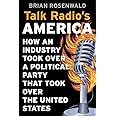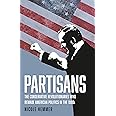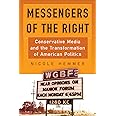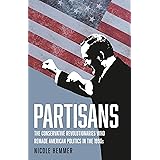
Enjoy fast, free delivery, exclusive deals, and award-winning movies & TV shows with Prime
Try Prime
and start saving today with fast, free delivery
Amazon Prime includes:
Fast, FREE Delivery is available to Prime members. To join, select "Try Amazon Prime and start saving today with Fast, FREE Delivery" below the Add to Cart button.
Amazon Prime members enjoy:- Cardmembers earn 5% Back at Amazon.com with a Prime Credit Card.
- Unlimited Free Two-Day Delivery
- Streaming of thousands of movies and TV shows with limited ads on Prime Video.
- A Kindle book to borrow for free each month - with no due dates
- Listen to over 2 million songs and hundreds of playlists
- Unlimited photo storage with anywhere access
Important: Your credit card will NOT be charged when you start your free trial or if you cancel during the trial period. If you're happy with Amazon Prime, do nothing. At the end of the free trial, your membership will automatically upgrade to a monthly membership.
Buy new:
-32% $20.37$20.37
Ships from: Amazon Sold by: BEYBAGI
Save with Used - Acceptable
$11.48$11.48
Ships from: Amazon Sold by: -OnTimeBooks-

Download the free Kindle app and start reading Kindle books instantly on your smartphone, tablet, or computer - no Kindle device required.
Read instantly on your browser with Kindle for Web.
Using your mobile phone camera - scan the code below and download the Kindle app.

OK
 Audible sample Sample
Audible sample Sample 


Talk Radio’s America: How an Industry Took Over a Political Party That Took Over the United States Hardcover – August 13, 2019
Purchase options and add-ons
The cocreator of the Washington Post’s “Made by History” blog reveals how the rise of conservative talk radio gave us a Republican Party incapable of governing and paved the way for Donald Trump.
America’s long road to the Trump presidency began on August 1, 1988, when, desperate for content to save AM radio, top media executives stumbled on a new format that would turn the political world upside down. They little imagined that in the coming years their brainchild would polarize the country and make it nearly impossible to govern. Rush Limbaugh, an enormously talented former disc jockey―opinionated, brash, and unapologetically conservative―pioneered a pathbreaking infotainment program that captured the hearts of an audience no media executive knew existed. Limbaugh’s listeners yearned for a champion to punch back against those maligning their values. Within a decade, this format would grow from fifty-nine stations to over one thousand, keeping millions of Americans company as they commuted, worked, and shouted back at their radios. The concept pioneered by Limbaugh was quickly copied by cable news and digital media.
Radio hosts form a deep bond with their audience, which gives them enormous political power. Unlike elected representatives, however, they must entertain their audience or watch their ratings fall. Talk radio boosted the Republican agenda in the 1990s, but two decades later, escalation in the battle for the airwaves pushed hosts toward ever more conservative, outrageous, and hyperbolic content.
Donald Trump borrowed conservative radio hosts’ playbook and gave Republican base voters the kind of pugnacious candidate they had been demanding for decades. By 2016, a political force no one intended to create had completely transformed American politics.
- Print length368 pages
- LanguageEnglish
- PublisherHarvard University Press
- Publication dateAugust 13, 2019
- Dimensions6.12 x 1.25 x 9.25 inches
- ISBN-100674185013
- ISBN-13978-0674185012
Books with Buzz
Discover the latest buzz-worthy books, from mysteries and romance to humor and nonfiction. Explore more
Frequently bought together

Customers who viewed this item also viewed
Editorial Reviews
Review
“Rejecting claims that the medium acted as a Republican puppet, [Rosenwald] describes a curious relationship between the Grand Old Party and talk radio hosts, one that has had seriously deleterious consequences for American political life.”―Financial Times
“[Rosenwald] argues that the profit motive radicalized talk radio and with it the Republican Party…Because conflict and scaremongering drove ratings and ratings drove profits, the more extreme the hosts became, the more listeners they gained, and the more money they made. As they amassed power and influence, the hosts could demand fealty from the politicians they were discussing every day.”―Eric Alterman, The Nation
“Moving the discussion of contemporary conservative media out of the realm of shadowy conspiracy theory and into the sunlight of deeply researched historical investigation, Brian Rosenwald shows how right-wing talk radio moved from the margins to the mainstream and warped American politics in the process. This book will be of vital interest to anyone concerned about restoring the quality of American democratic debate.”―Joseph Crespino, author of Atticus Finch: The Biography―Harper Lee, Her Father, and the Making of an American Icon
“Before there were social media echo chambers, before there was Fox News, there was Rush Limbaugh and his kin. Brian Rosenwald has told the definitive story of how a squad of outrageous, rule-breaking right-wing radio hosts set the Republican Party agenda and then overtook the party itself. Scholarly and yet eminently readable, this book is indispensable for understanding the world conservative media wrought.”―David Greenberg, Rutgers University
“Upending conventional wisdom, Brian Rosenwald’s deeply researched book offers an incisive account of how conservative talk radio transformed American politics, altering the relationships between Congressional leaders and rank-and-file members, between activists and the party establishment, and between the demands of entertainment and the process of policymaking.”―Bruce J. Schulman, Boston University
“The rise of conservative talk radio has changed American politics and American life, and Brian Rosenwald tells a careful and comprehensive story of its rise and its mushrooming influence. From Rush Limbaugh’s humble beginnings to the election of Donald Trump, Talk Radio’s America shows through careful research and subtle argument how talk radio moved well beyond entertainment and grievance to change the role and makeup of mainstream media, the kinds of stories Americans consume, and the pliable nature of truth. A superb guide to one of the most potent forces in modern political history.”―John Dickerson, 60 Minutes correspondent
“A brisk, well-researched history of the rise and transformation of talk radio…A vigorous analysis of contemporary politics.”―Kirkus Reviews
“Demonstrate[s] that broadcasters like…Rush Limbaugh were just as important to building the Republican Party as deified political figures like George Wallace, William Buckley, or Pat Buchanan. Indeed, far from being a mere tool of the Republican Party, talk radio is revealed…as the dominant explanation for that party’s continued existence, an essential precondition of the far right’s cultural dominance today.”―New Republic
“Important and groundbreaking…Expertly shows how disparate strands in the American political landscape converged in the late 1980s to help make talk radio the potent political force it would become…A must-read for anybody hoping to understand how Trump captured the Republican presidential nomination.”―Washington Examiner
“Rosenwald takes a look at the rise of conservative radio from a variety of perspectives and offers a clear study of how policies, market forces, personalities, and timing played a role in creating a movement…The book is interesting from beginning to end.”―John M. Bublic, European Legacy
“An informative account of talk radio and its impact on politics and policymaking.”―Glenn C. Altshuler, Pittsburgh Post-Gazette
“In his 2016 presidential run, Donald Trump utilized styles of rhetoric similar to those of talk radio hosts in order to garner a strong base of loyal followers and rile up political activism amongst his supporters…This book could prove useful for those interested how media―both the form factor and the communicative aspects―affect political standing.”―Tyler M. Wilson, Communications Booknotes Quarterly
“Documents Limbaugh’s formative role in turning an old technology into an instrument of power that transformed the Republican Party and political discourse in the United States…An important book…Goes a long way to documenting how an old medium helped create a new politics in the United States and paved the way for Donald Trump’s presidency.”―Vincent Mosco, IEEE Technology and Society Magazine
About the Author
Product details
- Publisher : Harvard University Press; First Edition, First Printing (August 13, 2019)
- Language : English
- Hardcover : 368 pages
- ISBN-10 : 0674185013
- ISBN-13 : 978-0674185012
- Item Weight : 1.45 pounds
- Dimensions : 6.12 x 1.25 x 9.25 inches
- Best Sellers Rank: #607,382 in Books (See Top 100 in Books)
- #361 in Political Parties (Books)
- #1,310 in Political Conservatism & Liberalism
- #2,132 in History & Theory of Politics
- Customer Reviews:
About the author

Discover more of the author’s books, see similar authors, read author blogs and more
Customer reviews
Customer Reviews, including Product Star Ratings help customers to learn more about the product and decide whether it is the right product for them.
To calculate the overall star rating and percentage breakdown by star, we don’t use a simple average. Instead, our system considers things like how recent a review is and if the reviewer bought the item on Amazon. It also analyzed reviews to verify trustworthiness.
Learn more how customers reviews work on AmazonReviews with images
-
Top reviews
Top reviews from the United States
There was a problem filtering reviews right now. Please try again later.
Reviewed in the United States on June 7, 2020












